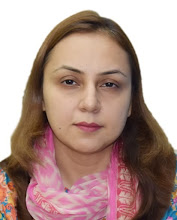Professional Development
Currently I
am part of a Professional development course which is a core requirement to
teach a Diploma level course at my School about teaching with digital technologies. Its been almost two weeks since this
course has started, and every day I have ended up learning something.
My
understanding of professional development is something that is on going, a process
which never stops. We do not need any formal courses to further build or
enhance our understanding regarding a topic, concept etc. Things can be learned
in any situation. Ken Keyes says, "everyone and everything around you is your
teacher". I find this amazingly true, we learn from each
other, by simply observing actions, by simply talking about things we observe,
by reading something that has intrigued us, by listening to some ones ideas and
so on. Learning never stops, the methodology, the process of acquisition is
different.
The reading
material shared during this course too says that PD is an ongoing process. It
further lists the steps that lead to professional development. It begins
with identifying an area of practice and researching or exploring about it,
followed by planning and developing a practical solution to it, putting the
solution into practice in the real world and finally reflecting and evaluating.
We had an
interesting discussion on what constitutes effective professional
development, one of the candidates shared a research, from an American
Educational Research Journal (Dec. 21, 2001 Vol 38. No 4 pp 915 - 945) which
cites three features of professional development activities that have
significant, positive effects on teachers' self-reported increases in knowledge
and skills and changes in classroom practices: (a) focus on content knowledge;
(b) opportunities for active learning; and (c) coherence with other learning activities.
I found it very relevant. It all talks about key ingredients of professional development. It talks of embedness ,how carefully things
are linked together, are in context and make sense.
One of the
colleagues had shared something worth thinking by Hoff (1982) which inspired me
a lot and i really enjoyed reading several times, actually helped me reflect on
what was i doing all this time.
How can you
get very far,
If you don’t
know Who You Are?
How can you
do what you ought,
If you don’t
know What You’ve Got?
And if you
don’t know Which To Do
Of all the
things in front of you,
Then what
you’ll have when you are through
Is just a
mess without a clue
Of all the
best that can come true
If you know
What and Which and Who.
(Hoff 1982: 58)
I went through the research carried by
UNESCO in 2008 which defines 10 principles of effective professional
development. All principles are important and need to be integrated with one
another. While skimming through the UNESCO report, the first principle about
focus on valued outcomes caught my attention. Success should not depend on the
mastery of teachers skills but how positively has this impacted the learning
outcomes. We often forget to gauge the impact on student learning. Kolbs
experiential cycle could actually help us reflect better on our practices.
Another
principle about assessment for inquiry which links what learners need to know
and do with what teachers need to know and do seemed very pertinent. It links
students learning needs to teacher professional learning needs. I like the idea
of self-regulatory skills where teachers seek feedback on their efforts.
Another
principle about developing approaches responsive to the learning process made
me think about our own teachers and how they respond to change. Teachers often
reject ideas that conflict with their current practices. I really like the idea
about how to go about this conflict, Its all about demonstrating
effective alternative practices, develop new knowledge and skills and make
small changes to practices and observe positive change sin students learning
outcomes.
I found the
reading valuable and it really helped build and clarify ideas.
The whole
process has enhanced my thinking about professional development. Its a whole
world in itself. If we want professional development courses to be successful
in our schools we need to start thinking of a number of things, a complete
follow up of all courses taught, regular support to colleagues, skilled and
trained education leaders who support their colleagues/staff , proper
infrastructure in place to support professional development etc only then will
PD have the impact we wish to see in our schools.
In simple term PD means growing UP both cognitively and socially. I might be wrong but just a thought.
Sheeba Ajmal

Comments
Post a Comment